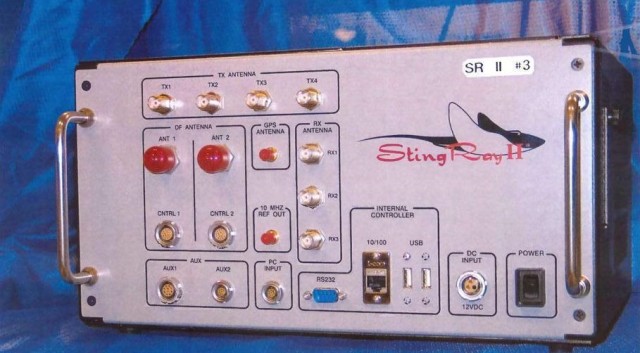As a new Congress dawns, a pair of powerful U.S. senators told FBI officials that they’re in the dark about police use of cell phone tracking devices, known as Stingrays.
In a Dec. 23 letter, Senate Judiciary Committee Chairman Patrick Leahy (D-Vermont) and Ranking Member Chuck Grassley (R-Iowa) (who will switch places when the Republican-controlled Congress assumes office) asked Obama administration officials for information on how the FBI uses cell phone data surreptitiously collected by the devices, but has nothing to do with police investigations.
“Specifically, we are concerned about whether the FBI and other law enforcement agencies have adequately considered the privacy interests of other individuals who are not the targets of the interception, but whose information is nevertheless being collected when these devices are being used,” the letter states.
Stingrays, which have also been used by Baltimore Police, mimic cell phone towers. When activated, Stingrays force all cell phones in an area to connect to the device, allowing authorities to see the precise location of the phone, its electronic serial number and other information. The data helps police track suspects, but it also gives them the information about other phones that just happen to be in the area.
In November, the American Civil Liberties Union intervened in a Baltimore man’s lawsuit against police over Stingray use. The defendant, Robert Harrison, argues his 4th Amendment rights were violated when he was named as an accomplice in a murder-for-hire case because he had the phone police were tracking with a Stingray. A hearing was scheduled in the case for Jan. 7 in federal court, and the ACLU of Maryland submitted the senators’ letter to the judge, arguing that Harrison’s case raises similar concerns to those raised by Grassley and Leahy. The hearing on various motions in the case is scheduled for 11 a.m. in the courtroom of Judge Catherine Blake.
In that case, police did not obtain a search warrant to use the Stingray, but instead got a court order for a “pen register” device. The ACLU argues that the order only covers devices that track cell phones by connecting to a single device.
According to the two U.S. senators, the FBI recently updated their policies, requiring a search warrant to be obtained before a Stingray can be used. But Leahy and Grassley still have a lot of questions. They sent U.S. Attorney General Eric Holder and Homeland Security Secretary Jeh Johnson a list of seven multi-part questions, and want each answered by Jan. 30.
Specifically, the two senators questioned three exceptions to the use of a search warrant. According to administration policy, authorities can forego a warrant if a case poses an “imminent threat to public safety,” involves a fugitive or if it used in public places at which the FBI deems there is “no reasonable expectation of privacy.”
“We understand that the FBI believes that it can address [privacy] interests by maintaining that information for a short period of time and purging the information after it has been collected,” the letter states. “But there is a question as to whether this sufficiently safeguards privacy interests.”
They also want to know how other agencies use the technology, which could potentially include local police.
Any answers from the feds would add a lot to the debate, since very little has been said publicly about Stingrays.
The information in the senators’ letter was summarized after a classified hearing, and, in Baltimore, police even withdrew evidence in a separate case from Harrison’s because the FBI wouldn’t let them talk about the devices publicly.
Before you go...
Please consider supporting Technical.ly to keep our independent journalism strong. Unlike most business-focused media outlets, we don’t have a paywall. Instead, we count on your personal and organizational support.
Join our growing Slack community
Join 5,000 tech professionals and entrepreneurs in our community Slack today!

The person charged in the UnitedHealthcare CEO shooting had a ton of tech connections

From rejection to innovation: How I built a tool to beat AI hiring algorithms at their own game

Where are the country’s most vibrant tech and startup communities?


